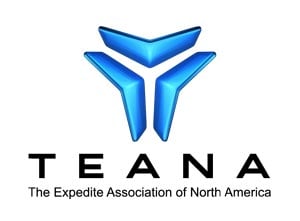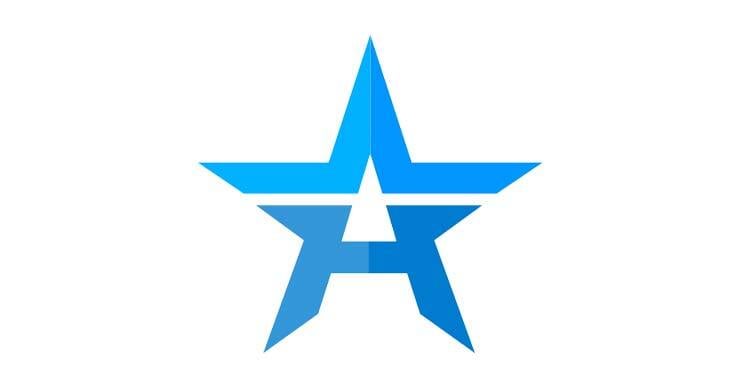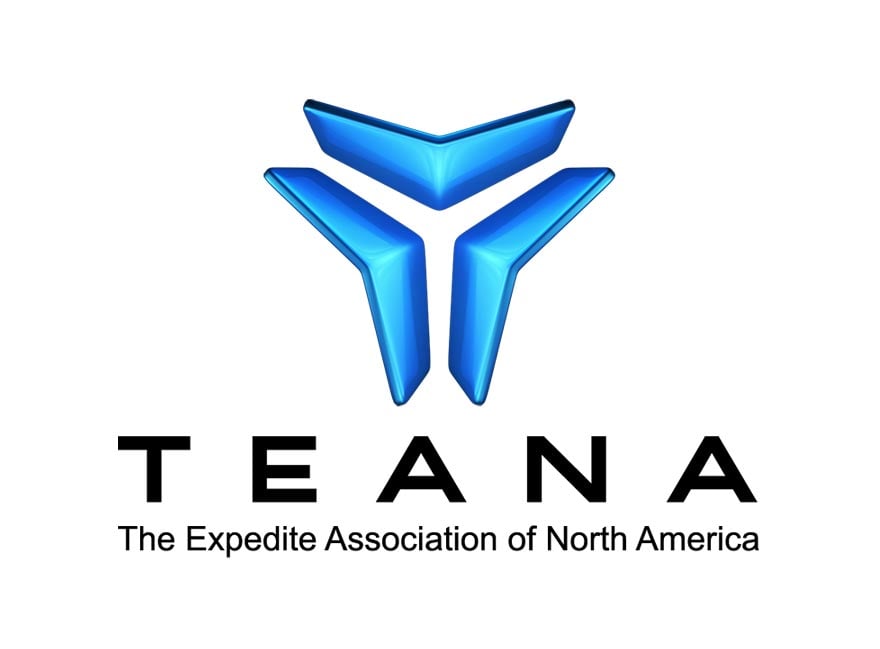
Contents
Regulation and Enforcement
- FMCSA extends deadlines in broker proceedings, sets March 31 session
- Earl Adams named FMCSA deputy administrator; Van Steenburg to retire as CSO
- Employers to be notified of drivers’ clearinghouse status changes
- FMCSA issues enforcement policy on actual knowledge of substance violations
- Pitt Ohio seeks relief from CDL requirement of younger driver program
- Autonomous vehicle firms seek relief concerning warning devices
- FMCSA denies carrier’s requested HOS relief for food product delivery
- FMCSA rejects another driver request for an HOS exemption
- Driver seeks personal exemption from multiple HOS requirements
- Driver seeks exemption to allow 5/5 split of sleeper berth time
Legislation
- Bill to repeal FET on trucks and trailers introduced in both Houses of Congress
- House bill addresses motor vehicle owners’ right to repair
- Bill would mandate video recording in federal CMV enforcement stops
Advocacy and Comment
Regulation and Enforcement
FMCSA extends deadlines in broker proceedings, sets March 31 session
FMCSA has extended or reopened the comment period in two proceedings related to brokers to accommodate a March 31 public listening session on broker-related matters to be held at the Mid-America Trucking Show in Louisville, Kentucky. In November, FMCSA had published interim guidance on the definitions of broker and bona fide agents. In January, the agency issued a notice of proposed rulemaking (NPRM) to regulate broker and freight forwarder financial responsibility as required by the Moving Ahead for Progress in the 21st Century Act (MAP-21). The comment period on the interim guidance closed January 17, and comments on the NPRM had been due March 6. Comments in both proceedings now will be due April 6.
The interim guidance, which responded to a mandate in the 2021 infrastructure law, was effective immediately. (For details on the interim guidance, see the December 2022 Regulatory Update.) The NPRM proposes regulations in five areas: (1) assets readily available; (2) immediate suspension of broker/freight forwarder operating authority; (3) surety or trust responsibilities in cases of broker/freight forwarder financial failure or insolvency; (4) enforcement authority; and (5) entities eligible to provide trust funds for BMC-85 filings. (For details of the NPRM, see the January 2023 Regulatory Update.)
Although the listening session is scheduled to address both proceedings, FMCSA has allocated only one hour to take comments. The event is scheduled for 10 a.m. Eastern in Room B104 of the Kentucky Expo Center. For registration information, visit https://www.federalregister.gov/d/2023-04720. For the Federal Register notice extending the NPRM comment period, visit https://www.federalregister.gov/d/2023-04716. For the notice reopening the comment period on interim guidance on the definitions of broker and bona fide agents, visit https://www.federalregister.gov/d/2023-04717.
Earl Adams named FMCSA deputy administrator; Van Steenburg to retire as CSO
Earl Adams, Jr., was sworn in on February 27 as FMCSA deputy administrator, filling the position that had been held by Robin Hutcheson prior to her confirmation as FMCSA administrator in September. Adams previously had been FMCSA’s chief counsel since July 2021. Prior to joining FMCSA, Adams had worked with several law firms, most recently as a litigation partner with law firm Saul Ewing LP and managing partner of that firm’s Washington, DC, office. Other experience includes a decade on the board of the Metropolitan Washington Airports Authority and chief of staff to the lieutenant governor of Maryland.
In another personnel development, Jack Van Steenburg announced his retirement after 15 years with FMCSA, including about 12 years as assistant administrator and chief safety officer. Before joining FMCSA in 2008, Van Steenburg had served with the New York State Police for 25 years. The agency recently posted the position at https://www.usajobs.gov/job/709373700.
Employers to be notified of drivers’ clearinghouse status changes
Effective March 8, employers now will be notified by email if drivers have queried has new information – a new violation, removed violation, updated return-to-duty status, etc. – recorded in their clearinghouse records within 12 months of a pre-employment or annual query. Because the agency does not know what motor carrier employs a driver at any given moment, notifications apparently will go to any carrier that conducted either a pre-employment or an annual query on the driver within the past 12 months. Moreover, employers will still be required to obtain specific consent from the driver before obtaining details of the newly reported information.
Previously, if a driver tested positive for controlled substances in a pre-employment drug test while seeking a job at a different employer, the current employer would not be aware of the change in the clearinghouse record until it completed its mandatory annual query on that driver. FMCSA said that the change is allowed as a “routine use” of driver information under the Privacy Act and is addressed in a September 2022 Department of Transportation Federal Register notice (https://www.federalregister.gov/d/2022-19779).
FMCSA simultaneously issued further guidance aimed at mitigating the potential hassle and expense of conducting both follow-on queries in response to automatic notifications and annual queries of the same drivers. Under the revised guidance, if an employer receives a notification that a driver has a change in his or her clearinghouse record and completes a follow-on query, that query satisfies the annual query requirement, and the rolling 12 months will reset to the date of the follow-on query.
Links to the updated policies on regarding notification of changes to clearinghouse records and the annual requirement for employee queries are available on FMCSA’s Regulatory Guidance webpage at https://www.fmcsa.dot.gov/guidance.
FMCSA issues enforcement policy on actual knowledge of substance violations
Drivers whose citations for driving under the influence (DUI) of controlled substances or alcohol in a commercial motor vehicle (CMV) result in a non-conviction will be able to resume driving without completing a return-to-duty (RTD) process under guidance issued this month.
FMCSA on March 8 issued a national enforcement policy (NEP) regarding situations where a commercial driver’s violation is based on an employer’s “actual knowledge” of a traffic citation for DUI. If the citation later results in a non-conviction, FMCSA will not (1) prohibit the driver from driving based on his or her failure to complete the RTD treatment and testing process; (2) cite employers for using such drivers who have not completed the RTD process following non-conviction; or (3) enforce related reporting requirements for employers of such drivers.
The NEP states that “non-conviction” means that the charge of a DUI in a CMV is dismissed without the imposition of any fines, court costs or other punitive action or that there is an unvacated adjudicated finding of not guilty. However, the term does not include pleading guilty to a lesser charge, such as reckless driving.
Links to the NEP and FAQs concerning the policy are available on FMCSA’s Regulatory Guidance webpage at https://www.fmcsa.dot.gov/guidance.
Pitt Ohio seeks relief from CDL requirement of younger driver program
FMCSA is requesting comments by March 27 on an application from Pitt Ohio Express to exempt its drivers from one of the requirements in the agency’s Safe Driver Apprenticeship Pilot (SDAP) program. Specifically, Pitt Ohio believes it would have less trouble recruiting drivers for the program if it could use drivers under age 21 that have a commercial learner’s permit (CLP) to operate CMVs in interstate commerce. FMCSA currently requires that an apprentice already hold a CDL prior to enrolling in the program. If granted, Pitt Ohio estimates that 25 CLP holders would operate under the exemption per year. For the Federal Register notice, visit https://www.federalregister.gov/d/2023-03783.
Autonomous vehicle firms seek relief concerning warning devices
FMCSA has requested comments by April 10 on an application from Waymo LLC and Aurora Operations, Inc., for an exemption from several requirements related to warning devices for stopped CMVs. The exemption would provide relief from the requirements that dictate placement of warning devices around stopped CMVs and that require warning devices to be steady-burning. The exemption also would allow use of a warning device for stopped vehicles not currently allowed by agency regulations. If approved, the exemption would allow CMVs operated by Level 4 automated driving systems (ADSs) to be equipped with warning beacons mounted on the truck cab in lieu of traditional warning devices placed around a stopped autonomous CMV.
FMCSA initially published a notice of the exemption application on March 3, but a March 9 notice clarified that the firms were seeking the relief on behalf of all motor carriers operating ADS-equipped CMVs and not just for Waymo or Aurora. That notice also extended the comment period to April 10. For the initial Federal Register notice, visit https://www.federalregister.gov/d/2023-04385. For the notice clarifying the scope and extending the comment period, visit https://www.federalregister.gov/d/2023-04841.
FMCSA denies carrier’s requested HOS relief for food product delivery
FMCSA has denied an exemption requested by Flat Top Transport LLC, a nine-truck carrier based in Holland, Michigan, for a four-month exemption from the hours-of-service regulations for “immediate and emergency delivery of dry and bulk food grade products to locations that supply stores and distribution centers nationally.” FMCSA said that supply chain issues alone are not a sufficient basis for exempting motor carriers transporting dry bulk food grade products from HOS regulations. The agency said that the carrier provided no basis on which it could conclude that granting an exemption from the HOS regulations would provide an equivalent level of safety. For the Federal Register notice, visit https://www.federalregister.gov/d/2023-03564.
FMCSA rejects another driver request for an HOS exemption
FMCSA has rejected an application from truck driver Wayne Moore, Jr., for an exemption from four provisions in the HOS regulations: (1) the 10 consecutive hour off-duty time requirement; (2) the 14-hour “driving window”; (3) the 30-minute break requirement; and (4) the 70 hours-in 8-days limit. FMCSA said that an exemption would not achieve a level of safety equivalent to, or greater than, the level that would be achieved without the exemption and that approval “could open the door for a huge number of similar exemption requests.” For the Federal Register notice, visit https://www.federalregister.gov/d/2023-03688.
Driver seeks personal exemption from multiple HOS requirements
FMCSA is requesting comments by April 3 on an application from truck driver John Olier for exemptions from the 11-, 14-, and 70-hour rules withing the hours-of-service regulations along with all mandatory rest periods, including the 10-hour and 30-minute breaks. Olier contended in his application that “current forced work/rest periods force me to drive outside my body’s healthy Circadian Rhythm,” creating “unsafe conditions not only for me but for other drivers and the general public.” FMCSA has rejected several similar requests. For the Federal Register notice, visit https://www.federalregister.gov/d/2023-04384.
Driver seeks exemption to allow 5/5 split of sleeper berth time
FMCSA is requesting comments by March 27 on an application by truck driver Matthew Killmer for an exemption that would allow him to split his sleeper berth time into two 5-hour periods. Killmer argued in his exemption application that the exemption would allow him to be more alert and rested and would facilitate finding a safe place to park his CMV. For the Federal Register notice, visit https://www.federalregister.gov/d/2023-03780.
Legislation
Bill to repeal FET on trucks and trailers introduced in both Houses of Congress
Legislation to repeal the 12% federal excise tax (FET) on heavy trucks and trailers was introduced in both the House and Senate in March. Sens. Todd Young (R-Indiana) and Benjamin Cardin (D-Maryland) introduced S. 694 while Rep. Doug LaMalfa (R-California) and three co-sponsors introduced H.R. 1440.
The legislation, called the “Modern Clean and Safety Trucks Act of 2023,” is essentially the same as bills that have been introduced but not advanced during the past several Congresses. The findings section of the bill states that the FET disproportionately affects electric and alternative-fueled trucks that have a higher upfront cost. For more information on S. 694, visit https://www.congress.gov/bill/118th-congress/senate-bill/694. For more information on H.R. 1440, visit https://www.congress.gov/bill/118th-congress/house-bill/1440.
House bill addresses motor vehicle owners’ right to repair
Rep. Neal Dunn (R-Florida) and eight co-sponsors have introduced a bill (H.R. 906) that would bar motor vehicle manufacturers from withholding data, critical repair information, or diagnostic or repair tools from vehicle owners or their designated repair facilities. Also, except for recall and warranty repairs, manufacturers would be prohibited from requiring vehicle owners from using any particular brand of parts, tools, or equipment. Although the bill does not specifically address CMVs it would establish a Fair Competition After Vehicles Are Sold Advisory Committee that would include a representative of the trucking industry. For more on H.R. 906, visit https://www.congress.gov/bill/118th-congress/house-bill/906.
Bill would mandate video recording in federal CMV stops
Rep. Eleanor Holmes North (D-District of Columbia) has introduced legislation (H.R. 843) that would require federal law enforcement officers to use body and in-car video cameras in numerous contexts, including CMV stops. In the context of CMV stops, the bill only addresses requirements for patrol vehicles equipped with in-car video cameras. For more on H.R. 843, visit https://www.congress.gov/bill/118th-congress/house-bill/843.
Advocacy and Comment
Several of the hot topic issues covered this month and in prior months are proceeding through the notice and comment phase.
1. Comments were submitted on the Agency’s proposal to alter the broker’s bond requirement and to more readily assure continuing bond availability. Although generally supportive of these changes, our coalition pointed out that the broker’s bond is no panacea for fraud and does not address the need in both regulated and deregulated commodities for federal investigatory and policing power. Comments were filed at https://www.federalregister.gov/d/2022-28259.
Our stakeholders believe that the extent and cause of the problem is unpoliced fraud which is particularly injurious to the use of the spot market in the booking of shipments. Left out of the bond issue is the felt need across the industry to avoid piecemeal treatment of the issue and address fraudulent schemes regardless of the commodities handled, including embezzlement of freight charges, bait and switch of carriers, identity theft and hijack by unauthorized reconsignment. The Agency has extended the time for filing comments until April 6, 2023, and the matter will be taken up in an open forum at the Mid America Trucking Show at the Kentucky Expo Center on March 31, 2023 from 10 am to 11 am ET. See https://www.regulations.gov/document/FMCSA-2022-0134-0114. The issue has become both chronic and acute and begs for federal enforcement remedy not currently available.
2. SMS Reboot. The FMCSA has made no systemic changes to SMS methodology in the past 7 years. While some of the flaws of the CSA 2010 algorithms have been removed in the recent proposal, the Agency’s goal seems unclear with respect to the Agency’s ultimate responsibility of assigning actual safety fitness determinations to the over 700,000 carriers it permits to operate.
In its first of three question and answer sessions, the Agency acknowledged that the FAST Act precluded it from presenting an ultimate safety fitness system without rulemaking and noted the new reboot calculations would be unpublished by the Agency but presumably readily calculable and available to plaintiff’s bars and insurers. In this regard the new proposal would not remedy the “fit to operate but not certified as fit to use” conundrum nor would it remedy a major cause of nuclear judgments and up-supply chain liability to plaintiffs’ bar’s delight. If the Agency’s unsupported conclusion that safety fitness data is only usable if less than a year old were adopted, unless shown to be more effective, only 1 out of every 140 carriers would actually be assigned a safety rating each year.
In the next two listening sessions, the Agency should address how the reboot affects the industry’s ability to rely on the “fit to operate is fit to use” standard and what, if any, effect the reboot would have on the Agency’s ultimate task of assigning safety ratings.
Taken together, the pending guidance issues noted above offer no remedy to the industry’s need for Agency vetting of carriers and brokers. The dispatch service and the bonding changes as proposed do not address the need for better monitoring and enforcement of federal anti-fraud statutes, particularly with respect to exempt as well as regulated shipments. The SMS reboot does not address how the changing criteria would affect the tens of thousands of new carriers applying for authority each year and how the proposed reboot would affect the shipping public’s intended use or consideration of the modified data in their carrier selection process.
Our Process lorem ipsum dolor sit amet, consectetur adipiscing elit. Nunc vulputate libero et velit interdum, ac aliquet odio mattis.
Value prop lorem ipsum
Ut posuere hendrerit nisl metus neque. Facilisis quis adipiscing a molestie. Tempor turpis tincidunt nulla diam in. Nec etiam ut neque placerat mauris nulla. Semper hendrerit at urna orci in faucibus sit lacus. Tincidunt fermentum consequat.
SEE OTHER CITIES WE SERVICE IN THIS STATE
Value prop lorem ipsum
Ut posuere hendrerit nisl metus neque. Facilisis quis adipiscing a molestie. Tempor turpis tincidunt nulla diam in. Nec etiam ut neque placerat mauris nulla. Semper hendrerit at urna orci in faucibus sit lacus. Tincidunt fermentum consequat.
SEE OTHER CITIES WE SERVICE IN THIS STATE
Related Blog Posts

Regulatory and Legislative Update - January 2025
Contents Regulation and Enforcement FMCSA expands crash preventability review criteria FMCSA to highlight upcoming SMS changes in January 16 webinar Compliance date pushed back for certain provisions of broker/forwarder rule Trump labor pick, port dispute stance raise questions about labor policy FMCSA proposes to waive hazmat endorsements for certain limited operations Company denied exemption for limited interstate driving by younger drivers...

Regulatory and Legislative Update - February 2023
Contents Regulation and Enforcement FMCSA proposes to revamp SMS, rejects IRT as ‘overly complex’ FMC judge rules in favor of motor carriers on intermodal chassis choice Further input sought on regulating autonomous trucking operations Three ELDs are removed from FMCSA’s list of registered devices CVSA International Roadcheck scheduled for May 16-18 FMCSA rejects driver’s requested exemption from HOS, ELD requirements Multiple carriers seek...

Regulatory and Legislative Update - December 2022
Contents Regulation and Enforcement FMCSA issues interim guidance on definitions of broker and bona fide agents FMCSA plans to narrow scope of emergency declaration relief ‘Interpretive rule’ clarifies applicability of regulations to passenger carriers Withdrawal of passenger inspection rulemaking confirmed by FMCSA Livestock stakeholders are denied broad HOS exemption FMCSA rejects owner-operator’s exemption from various HOS provisions Driver...

Regulatory and Legislative Update - May 2023
Contents Regulation and Enforcement DOT to allow oral fluids testing for controlled substances FMCSA forms task force on truck leasing FMCSA says states may grant CDLs or CLPs to Mexican citizens under DACA program California mandates zero-emissions vehicles by 2042 Comment periods closing soon on SMS changes, crash preventability program Propane industry denied broad HOS exemption Alaskan ice road school seeks skills test exemption FMCSA renews...

Regulatory and Legislative Update - January 2023
Contents Regulation and Enforcement FMCSA proposes changes in broker and forwarder requirements Exemption rejected for including hair testing results into drug clearinghouse FMCSA implements 10-year refresher training and certification for medical examiners DOT modal agencies adjust civil penalties for inflation FMCSA to begin work on vehicle crash causation study Stevens Transport receives CDL-related exemption FMCSA grants two driver training...

Regulatory and Legislative Update - November 2023
Contents Regulation and Enforcement NLRB issues final rule on determining joint employer status Comments due November 29 on potential SMS changes FMCSA issues final rule on broker/forwarder financial responsibility Medical waste removal firm seeks exemption for additional driving time Company seeks HOS exemption for drivers hauling cement Firm seeks exemption to allow use of camera alternative to mirrors Legislation House and Senate bills would...

Regulatory and Legislative Update - October 2020
Contents FMCSA has extended through December 31 its emergency declaration regarding enforcement relief for drivers and carriers involved in COVID-19 response. For details, visit www.fmcsa.dot.gov/COVID-19. Regulation and Enforcement Labor Department proposes to clarify independent contract status OMB reviewing interim rule on agricultural commodity, livestock definitions TIA seeks rulemaking to end transaction reporting mandate FMCSA rejects bid...

Regulatory and Legislative Update - March 2022
Contents FMCSA has extended its emergency declaration regarding COVID-19 through February 28. For the latest version and other guidance related to COVID-19 is available at www.fmcsa.dot.gov/COVID-19. Note that use of the declaration now requires monthly reporting by carriers. Regulation and Enforcement FMCSA removes x-ray exam from definition of ‘medical treatment’ FMCSA drops mandate that drivers disclose traffic violations to employers FMCSA...

Regulatory and Legislative Update - July 2022
Contents FMCSA has extended its emergency declaration regarding COVID-19 through August 31, 2022. For the latest version and other guidance related to COVID-19 is available at www.fmcsa.dot.gov/COVID-19. Note that use of the declaration now requires monthly reporting by carriers. Courts Leased owner-operator model outlawed in California as Supreme Court denies cert Supreme Court refuses to consider preemption of broker negligent selection...

Regulatory and Legislative Update - May 2022
Contents FMCSA has extended its emergency declaration regarding COVID-19 through May 31, 2022. For the latest version and other guidance related to COVID-19 is available at www.fmcsa.dot.gov/COVID-19. Note that use of the declaration now requires monthly reporting by carriers. Regulation and Enforcement FMCSA resurrects plan to require speed limiters on heavy trucks FMCSA revisits state inspection programs for passenger carriers Final rule...

Regulatory and Legislative Update - June 2024
Contents Regulation and Enforcement FMCSA to hold listening sessions on safety fitness procedures FMCSA outlines plan for updating registration process FMCSA to hold public meeting on fees charged for towing and recovery UCR fees to rise in 2025 after two years of decreases FMCSA rejects SBTC petition related to broker role in executing cargo claims Washington high school seeks age relief on commercial permits Company seeks exemption to allow...

Regulatory and Legislative Update - August 2023
Contents Regulation and Enforcement FMCSA to revisit state regulation of drivers’ rest breaks Three devices removed from list of registered ELDs FMCSA updates technical guidance on ELDs Brian Stansbury appointed FMCSA’s chief counsel FMCSA rejects driver’s requested exemption from multiple HOS requirements Legislation Senate DOT funding bill would block younger driver program mandates Senate bill would establish a carrier selection standard...
WHAT IS HOT SHOT TRUCKING? AKA HOTSHOT TRUCKING
Modern business is all about strict timelines. Whether your field is manufacturing, extraction, retail, or research and development, your operations are bound to rely on activities that operate in tandem. The most minor of supply shortages can throw these activities off, potentially costing you thousands of dollars just for a few hours' delay. Success thus hinges on your ability to right the ship as quickly as possible after a supply shortage arises.
Industries We Serve
Modern day hot shot trucking provides the speed and exclusivity you need to meet the most demanding and time-sensitive shipping requirements. We use every resource, avenue, and channel available to ship your freight by ground or air. Designed specifically to address supply and distribution problems that arise without warning, hotshot trucking tactics involve coordinating a network of carriers in a variety of locations. By calling on the vehicles closest to your supply or distribution points, hotshot brokers can fill any sudden gaps in your supply network almost as soon as they happen. This minimizes the disruption to your business and allows you to quickly return to ordinary operations, weathering the storm without skipping a beat.
Automotive
The automotive supply chain already has significant challenges. Don’t let malfunctioning equipment stop the production line. Step on the gas with HotShotTrucking.com’s suite of services that will get you back in the fast lane. With HotShotTrucking.com, companies are devising shipping strategies to swiftly deliver critical parts and equipment — whether it's ground expedite service with sprinter vans, box trucks and 53-foot tractor trailers or air freight and air cargo.
Aviation & Aerospace
Every moment a commercial airliner sits on the ground, it costs an airline money. Expedited freight services by HotShotTrucking.com can get you back in the air with prompt delivery of parts and equipment throughout North America. We are equipped with the expertise to navigate the complexities of shipping jet engines and other types of loads, and our network of hot shot drivers has extensive experience transporting aviation assets.
Construction
One shipping delay can snowball and cause delays throughout your entire project. You need an experienced 3PL provider who understands the construction industry and has the logistical reach to deliver your freight on time, anywhere. That 3PL partner is HotShotTrucking.com. Whether in the air or on the ground via truck and trailer, we can connect companies to expedited freight services for the prompt delivery of parts and equipment throughout North America.
Mining & Metals
From cranes to chemicals to excavators to conveyor belts, HotShotTrucking.com has the experience and industry know-how required for shipping sensitive, oversized, and hazardous equipment. Third-party hot shot trucking and logistics providers such as HotShotTrucking.com specialize in devising and implementing innovative shipping solutions, ensuring mines can swiftly return to operation. We’ll pick up your shipment, deliver it to the airport and receive it at the other end – providing hand-carried service as necessary or required.
Manufacturing
Every moment a manufacturing facility or factory sits idle costs a company money because of the high costs involved. With many manufacturers building to only just-in-time production rates, any disruption threatens parts and vehicle inventories. This is where the speed and expertise of freight services from HotShotTrucking.com can make a difference throughout the entire manufacturing supply chain. We do all the logistical legwork to find the optimal solution for your job, whether it's an exclusive air charter or expedited ground shipping.
Telecommunications
From servers to cell towers, information, voice, and data must flow to keep businesses, production, and the public online and connected. When equipment goes dark, depend on HotShotTrucking.com to get your systems flashing green again. This is where the speed and experience of trucking and freight services from HotShotTrucking.com can help. Our hot shot truck network excels at the prompt delivery of parts and equipment throughout North America.
Oil & Gas
The oil and gas industry faces challenging conditions in offshore and onshore oil rigs, often in remote locations with limited infrastructure. Don’t let oil pumps or pipelines sit idle waiting for equipment. By having the right plans, parts, people, and logistics partner like HotShotTrucking.com, you can effectively mitigate plant or pump downtime, unscheduled disruptions, and equipment failures.
Cost of Urgent Shipping
Which of our specialized shipping services best fits your needs?
Blog and Resource Center
How AirFreight.com Solved a PGA Tour Shipping Emergency
Learn how AirFreight.com located a lost shipment and helped save the PGA Golf Tour.
How AirFreight.com Saved The Farm By Solving A Major Shipping Delay
Learn how we saved a Montana-based artisanal farm thousands of dollars by expediting a shipment of perishable goods.
Expedited Shipping Vendor Comparison
We’ve done the research for you. This vendor comparison sheet breaks down how AirFreight.com stacks up against the competition.

talk to an expeditor now
Get a Quote in Minutes for Your Time-Critical Freight Needs
GET A QUOTE
